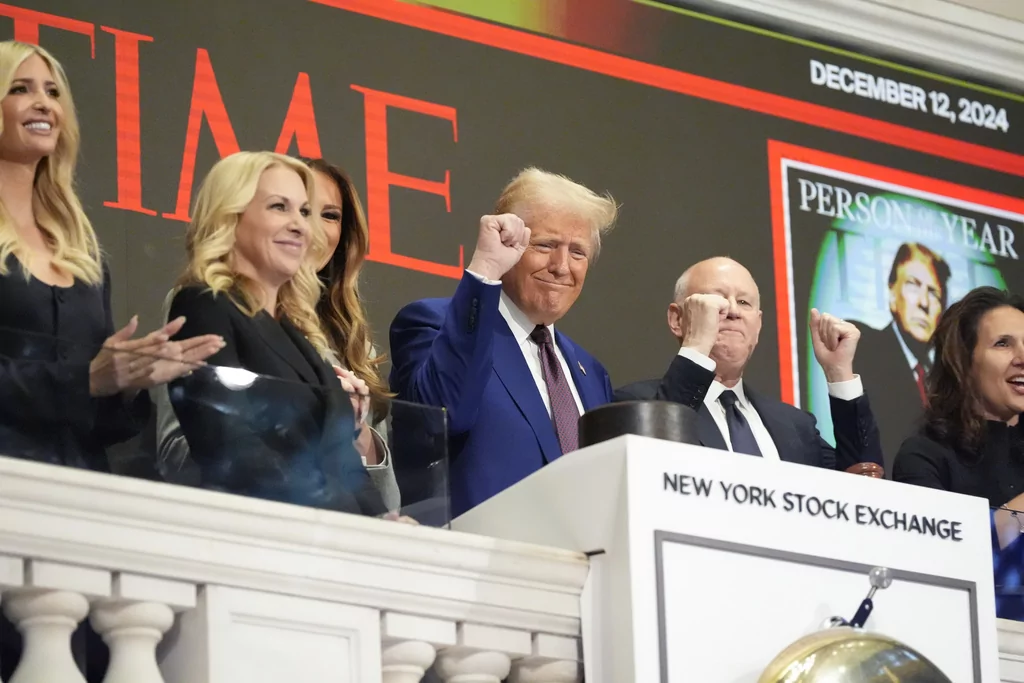

President-elect Donald Trump may be a billionaire, but his blue-collar appeal is what helped him win last month’s election.
Now, he is contending with the conundrum of how to govern during his second administration, considering his broad coalition and their conflicting interests.
Two challenges for Trump have already emerged, even before the inauguration, as congressional Republicans, including House Ways and Means Chairman Jason Smith (R-MO) and Senate Majority Leader-elect John Thune (R-SD), start drafting a tax reform bill, despite disagreement over their legislative strategies.
“We’re going to be cutting taxes still further,” Trump told CNBC this week. “We got [the corporate tax rate] down to 21%. We’re going to bring it down even below that. You pay 21 if you don’t build here, and meaning your product, or whatever it is you’re building, and if you do, we’re going to try getting it down to 15%, but you have to build your product, make your product in the USA.”
After promising no taxes on tips, overtime pay, and Social Security, Trump also appeared open to decreasing capital gains taxes in the same interview, conducted during the president-elect’s trip to the New York Stock Exchange on Thursday.
But after the same trip to his hometown of New York City, Trump posted on social media his support of dockworkers before their contract expires next month and ahead of an expected strike after meeting with union representatives, International Longshoremen’s Association President Harold Daggett and Vice President Dennis Daggett.
“There has been a lot of discussion having to do with ‘automation’ on United States docks,” Trump wrote on Truth Social. “I’ve studied automation and know just about everything there is to know about it. The amount of money saved is nowhere near the distress, hurt, and harm it causes for American Workers, in this case, our Longshoremen.”
It is “a tough straddle” for Trump to make overtures to union members if his tax cuts are for wealthy individuals and corporations, according to Brookings Institution Center for Technology Innovation senior fellow Darrell West.
“Democrats surely will point out the inconsistencies and say he is favoring the rich and not doing much for workers,” West told the Washington Examiner. “He has to be careful not to stray too far in his economic policies from his rhetoric because opponents will seize on inconsistencies in this area.”
But Trump’s transition team is unconcerned about the perceived “inconsistencies,” instead citing it as evidence that the president-elect “is proving that you can bring together voices from Main Street to Wall Street,” at least according to incoming White House press secretary Karoline Leavitt.
“The president is steadfast in his commitment to uplifting all Americans by cutting taxes and regulations, putting more money in their pockets, and encouraging investments here at home to protect American jobs,” Leavitt told the Washington Examiner.
Trump’s presumptive treasury secretary nominee, Scott Bessent, a hedge fund manager who was a partner at Soros Fund Management before founding Key Square Group, a global macro investment firm, amplified a similar talking point during the president-elect’s trip to the New York Stock Exchange, which additionally commemorated him being named Time‘s Person of the Year.
“What we’re going to see from President Trump is Wall Street can win, and Main Street can win. Everybody can do great,” Bessent, who will likely be the first openly gay treasury secretary, told CNBC.
Bessent is not the only billionaire who will be nominated to become a member of Trump’s Cabinet after the inauguration in January. There is presumptive commerce secretary nominee Howard Lutnick, CEO of financial services firm Cantor Fitzgerald, and Lutnick’s Trump transition co-chair, Linda McMahon, the former CEO of World Wrestling Entertainment. and Small Business Administration administrator during Trump’s first administration, who will be nominated to become the president-elect’s education secretary during his second.
Then there is Gov. Doug Burgum (R-ND), a former technology entrepreneur who is now Trump’s presumptive interior secretary nominee, Trump’s presumptive NASA administrator nominee Jared Isaacman, founder of tactical fighter aircraft services firm Draken International, and the president-elect’s presumptive nominee to be the next U.S. ambassador to the U.K, Warren Stephens, an investment banker. That is in addition to Tesla and SpaceX CEO Elon Musk and biotechnology entrepreneur Vivek Ramaswamy, who, as heads of the new Department of Government Efficiency, will not require Senate confirmation.
It’s uncertain whether Trump will need the advice and consent of the Senate for Middle East envoy Steven Witkoff, a real estate tycoon, because of the changing procedural rules regarding envoys.
Trump’s election win has been mostly welcomed by Wall Street and the business community, with Meta founder Mark Zuckerburg and his Amazon counterpart Jeff Bezos donating $1 million apiece to the president-elect’s inaugural fund, a committee co-chaired by Witkoff and former Georgia Sen. Kelly Loeffler, Trump’s presumptive administrator nominee for Small Business Administration and one-time CEO of cryptocurrency owning and trading platform Bakkt Holdings. Zuckerberg met with Trump at Mar-a-Lago in Florida last month. Bezos, who was criticized during the campaign for preventing the Washington Post from publishing an endorsement of Vice President Kamala Harris, is anticipated to do so next week.
Although Trump’s Cabinet is brimming with billionaires, his win can be attributed, in part, to his appeal among blue-collar workers, including those who have traditionally supported Democrats. According to 2024 exit polls, Trump increased his support among households with union members compared to 2020, 45% to Harris’s 53% this year in contrast to 40% in 2020 to President Joe Biden’s 56%. In 2016, then-Democratic presidential nominee Hillary Clinton had 51% to Trump’s 42%.
To that end, Trump announced former Oregon Rep. Lori Chavez-DeRemer as his presumptive labor secretary nominee last month. Chavez-DeRemer, who was endorsed by Teamsters President Sean O’Brien, was the only Republican co-sponsor and one of three congressional Republicans to support the Protecting the Right to Organize Act, which strengthens workers’s rights to organize and weakens state right-to-work laws.
Trump, too, will have the opportunity to reshape the National Labor Relations Board next year after retiring Sens. Joe Manchin (I-WV) and Kyrsten Sinema (I-AZ) voted with Republicans this week to stop Democrats from protecting the party’s majority on the board by nominating chairwoman Lauren McFerran to serve another five-year term.
CLICK HERE TO READ MORE FROM THE WASHINGTON EXAMINER
Meanwhile, ILA President Harold Daggett has praised Trump for making his support of dockworkers not “private” but “clear to the whole world,” asserting the president-elect demonstrated “the utmost respect for the hard work, sacrifices, and dedication of our membership.”
“This man truly wants to fight for America and its working class,” Daggett told his members in a letter shared with the Washington Examiner. “In over 25 years of working in Washington, I have never seen a Republican take up the mantle for working-class people. President-elect Trump proved me wrong.”






